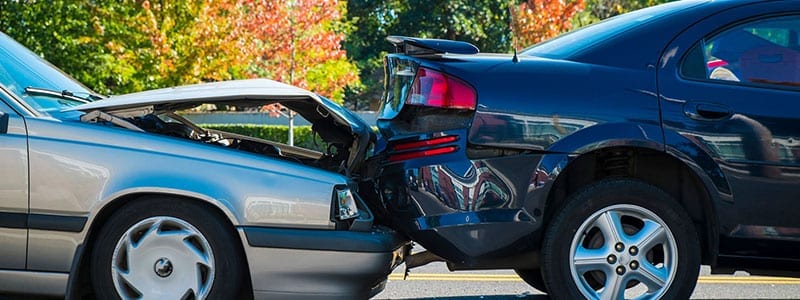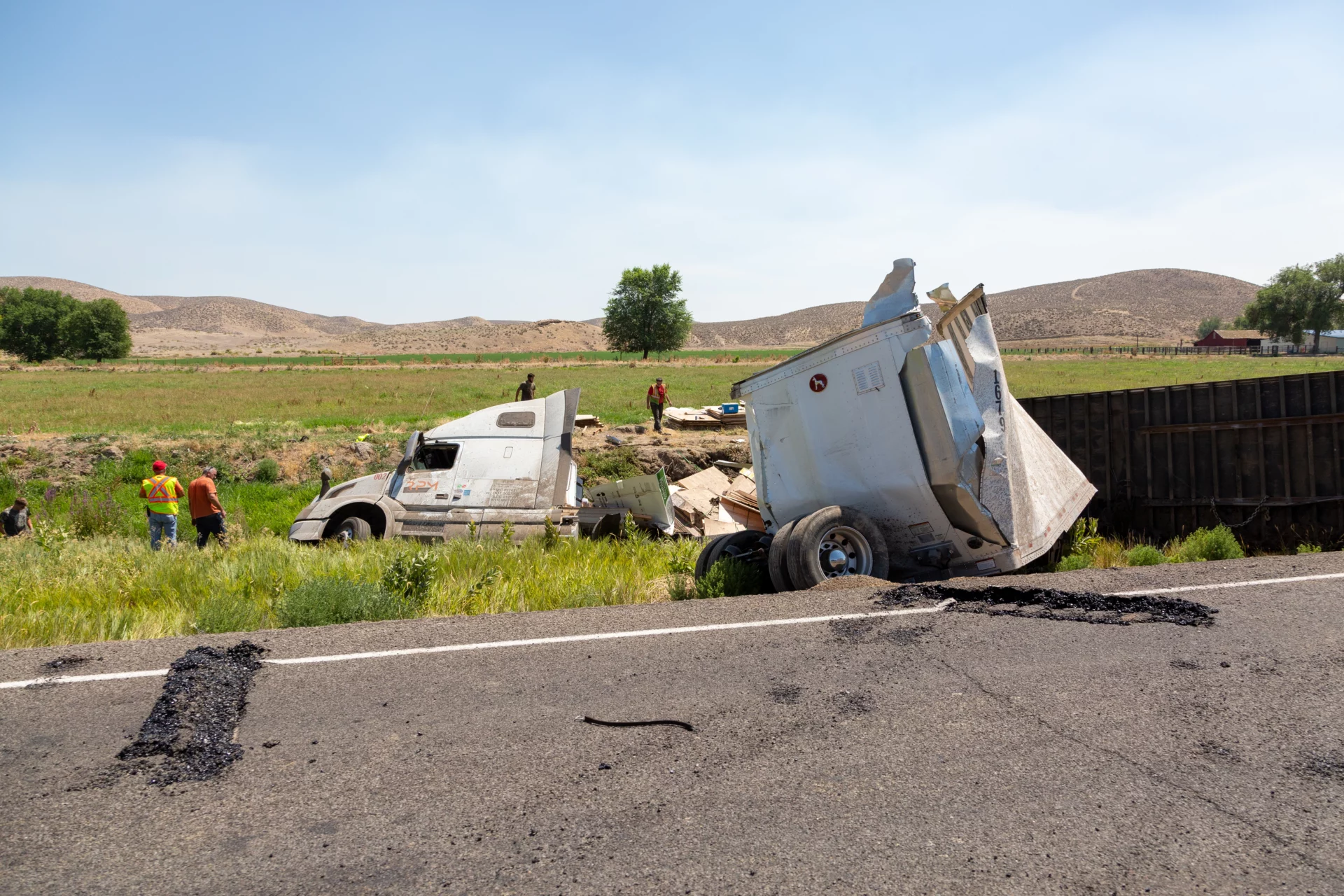
What You Need to Know About Uber and Lyft Accidents
In today’s fast-paced world, ridesharing services like Uber and Lyft have become a popular choice for getting around. However, like any mode of transportation, accidents can happen. When ridesharing services are involved, things can get a bit complicated. If you’re a victim of an Uber or Lyft car accident, you may have questions about the Uber accident policy and may be unsure of how to start the claims process.
All car accidents, regardless of who is driving or the type of vehicle involved, have the potential to be scary and leave anyone affected by the accident with questions and worries about the future. When an Uber car accident occurs, the damage can be especially troublesome. During this difficult time, a New Jersey Uber accident lawyer can help you file a claim after a rideshare accident and recover the rideshare settlement you deserve.
Quick Summary:
- Ridesharing services like Uber and Lyft provide a convenient and affordable way to request rides from nearby drivers using a smartphone app.
- Uber and Lyft accidents can be complicated, leaving victims with questions about insurance coverage and the claims process.
- Common causes of rideshare accidents include driver negligence, passenger behavior, defective vehicle parts, adverse weather, and poor road conditions.
- Injuries from rideshare accidents can range from head injuries and broken bones to cuts and back injuries, often requiring medical attention and rehabilitation.
- Understanding rideshare insurance coverage and determining who is liable for damages can be challenging, depending on various factors such as fault and the stage of the ride.
- If you’ve had an accident with a rideshare driver, you can sue the rideshare company’s insurance if certain conditions are met. Gather evidence, notify the company, seek legal advice, and consider settling before filing a lawsuit.
- In New Jersey, the verbal threshold law limits your ability to sue for damages after a car accident, unless you’ve sustained serious injuries like death, dismemberment, or permanent injury.
- In New Jersey, the verbal threshold law doesn’t apply to Uber accidents, so you don’t need to meet the serious injury threshold when suing a third-party driver or an Uber driver not working at the time.
- In Uber or Lyft accidents, potential damages fall into two categories: economic (like medical bills and lost wages) and non-economic (such as pain and suffering and emotional trauma).
- Victims of rideshare accidents in New Jersey have a two-year deadline, known as the statute of limitations, to file a claim for compensation.
Understanding Ridesharing Services
Ridesharing services like Uber and Lyft are a modern way to get a ride from one place to another. Instead of calling a taxi or driving yourself, you can use your smartphone to request a ride from a driver who’s nearby and available to pick you up.
Using ridesharing services is convenient because you can request a ride anytime, anywhere, as long as there’s a driver available nearby. It’s also often cheaper than taking a taxi and more comfortable than using public transportation.
Common Causes of Rideshare Accidents
Rideshare accidents are caused in the same manner as all other motor vehicle accident types: via acts of negligence. Most of the time, the party who is negligent is one of the drivers involved – either the driver of the rideshare vehicle or the driver of the other vehicle.
Common acts of driver negligence that cause crashes include:
- Speeding
- Failing to yield
- Following too closely/tailgating
- Driving while distracted
- Driving while impaired
- Failing to adhere to traffic safety laws and regulations
While driver negligence is one of the most common causes of rideshare accidents, it is not the only one. Other things that can cause or contribute to the risk of a rideshare accident include:
- Passenger Behavior
- Defective Vehicle Parts
- Weather Conditions
- Poor Road Conditions
Common Injuries from Uber or Lyft Accidents
Accidents involving Uber and Lyft can cause various injuries, from minor to severe. Here are some of the most common injuries people suffer in rideshare accidents:
- Head Injuries
- Broken Bones
- Cuts and Lacerations
- Back Injuries
Understanding Rideshare Insurance – Who Will Pay My Claim?
Rideshare companies like Uber and Lyft have insurance to cover accidents. However, one of the most complicated elements of being involved in a rideshare accident is knowing who is liable for the rideshare accident claim.
Who will pay for a rideshare accident depends on two primary things:
- who was at fault for the accident
- which insurance policy applied at the time that the accident occurred (whether or not your injuries are serious may play a role in recovery, too – see more details about the verbal threshold below).
What Insurance Policy Should I Apply In Uber and Lyft Accidents?
Rideshare insurance works differently than regular car insurance. It depends on what stage of the ride you’re in when the accident happens. Consider the following about which insurance policy applies assuming the driver of the rideshare vehicle was at fault:
En Route or With a Passenger
If the accident occurred while the Uber driver was en route to pick up a passenger or while the driver had a passenger in the car, then Uber’s insurance policy will apply. Uber maintains $1,000,000 in third-party liability coverage.
The App is Turned On and is Waiting for a Ride Request
If the driver is not en route to pick up a passenger and is not transporting a passenger but is logged into the app and waiting for a ride request when the accident occurs, then Uber’s third-party liability insurance will apply if the driver’s personal insurance does not. Limits are $50,000 in bodily injury coverage per person and $100,000 per accident, as well as $25,000 in property damage liability coverage per accident.
The Rideshare App is Off
If the Uber driver had the app turned off at the time of the accident, they are treated like any other motorist. They are considered to have not been working at the time. If the app is off and the driver is using the vehicle for personal use, then that driver’s personal insurance, which is mandatory in our state, will apply.
Of course, there may be a situation where the Uber/rideshare driver is not at fault. If this is the case, the insurance company of the at-fault party will likely be responsible for paying for damages. Because New Jersey follows a system of no-fault insurance, most of the time, you can bring a claim with your own insurance company for compensation after an accident. Note that NJ Uber law also requires rideshare companies to maintain $1.5 million in liability and uninsured/underinsured coverage for passengers.
How to Sue Uber or Another Rideshare Company?
If you have been involved in an accident with a rideshare driver, you may maintain the right to bring forth a claim directly against the rideshare company’s insurance (assuming one of the above conditions when the rideshare company insurance would apply is satisfied). You may follow these steps:
- Evaluate Your Case – Before suing, consider if you have a valid legal claim. This involves determining who was at fault for the accident and the extent of your injuries and damages.
- Gather Evidence – Collect any evidence related to the accident, such as photographs, witness statements, medical records, and correspondence with the rideshare company. This evidence will support your case in court.
- Notify the Rideshare Company – Inform Uber or the relevant rideshare company about the accident as soon as possible. They may have specific procedures for handling accidents and could offer a settlement before going to court.
- Seek Legal Help – It’s advisable to seek legal advice from a personal injury attorney. They can assess your case, advise you on your legal options, and represent you in court if necessary.
- File a Lawsuit – If you are not offered the settlement that you believe you deserve and settlement negotiations fail, you can file a lawsuit directly against the rideshare company. This involves submitting legal documents to the court and formally initiating the lawsuit process. However, attempting to settle out of court first is advised.
Verbal Threshold in NJ – What’s That?
As stated above, you may be able to file a lawsuit after an Uber accident. However, whether or not you have the right to do this will be affected, in large part, by the NJ verbal threshold law and who was at fault for the accident.
Verbal threshold refers to a limitation on the right to sue. New Jersey is a no-fault car insurance state, which means that when a driver is injured in an accident, if the driver has selected a basic insurance policy, they will be barred from filing a lawsuit against the at-fault party for damages; instead, they must turn to their own insurance’s Personal Injury Protection (PIP) coverage first.
However, there is an exception to the NJ verbal threshold rule. If a victim suffers serious injuries, they may pursue noneconomic damages via a tort action. Serious injuries, per New Jersey Code Section 39:6A-8 include:
- Death
- Dismemberment
- Significant disfigurement or scarring
- Displaced fractures
- Loss of a fetus
- Permanent injury within a reasonable degree of medical probability
Uber Law in NJ and the Verbal Threshold
Fortunately for those who are injured in rideshare accidents, the verbal threshold in NJ does not apply. This is because the limit to sue does not apply to transportation networks or damages arising from a prearranged ride.
As such, you will need to meet the serious injury threshold if you are filing a lawsuit against a third-party driver in an Uber accident or if you are pursuing a claim against an Uber driver who was not working at the time of the accident; you will not need to meet the threshold if you are filing a claim for damages against the rideshare company itself.
What to Expect: Potential Damages in an Uber or Lyft Accident
Generally, two categories of damages apply to most rideshare accidents: economic and non-economic. They each play an essential role in your claim’s value, especially if your injuries are severe.
Economic Damages
These are the direct costs you face because of the accident. It includes things like:
- Medical Bills
- Lost Wages
- Property Damage
- Future Expenses
Non-Economic Damages
Non-economic damages focus on the emotional and physical impact the accident had on your life. It includes:
- Pain and Suffering.
- Loss of Enjoyment of Life
- Emotional Trauma
Is There a Deadline for Filing a Lawsuit for Uber and Lyft Accidents in New Jersey?
In New Jersey, there’s a deadline for filing a lawsuit after an accident, called the statute of limitations. This rule is important to understand if you’ve been injured in such an accident.
For rideshare accidents in New Jersey, you generally have two years from the date of the accident to file a claim. If you miss this deadline, you might lose your chance to seek compensation for your injuries and damages.
Call Our New Jersey Uber Accident Lawyers Now!
Accidents involving Uber and Lyft can be complicated, but understanding your rights and options is crucial. Whether you’re a passenger, driver, or pedestrian, knowing what to do after an accident can make a big difference in the outcome of your case.
At Kreizer Law, our New Jersey Uber accident attorneys are committed to helping people just like you who’ve been hurt in Uber and Lyft accidents. Our personal injury law firm will guide you on what your rights are as well as the options available to you. We’ll handle all communications and negotiations to ensure you receive fair compensation for your injuries and damages.
If you’ve been injured in a rideshare accident, don’t wait to take action. Contact us now to schedule a free consultation and let us advocate for your rights. We can help you learn more about Lyft and Uber accident policies and how to recover a fair settlement after a rideshare accident in New Jersey. We can also help you handle nursing home abuse, medical malpractice, sexual abuse, wrongful conviction, and worker’s compensation cases.










